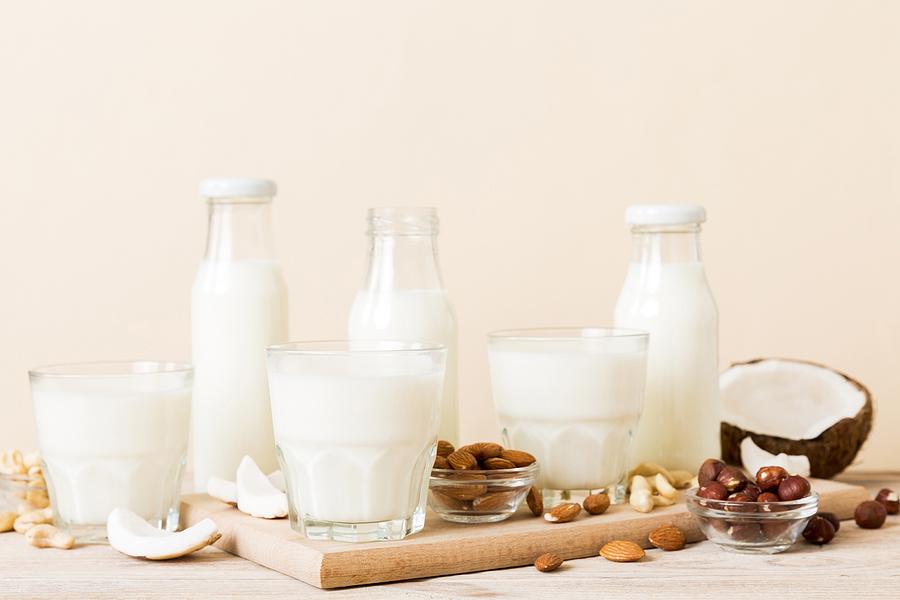Almond milk can be a healthy alternative to traditional milk, but does it have the same benefits for your teeth that dairy milk is known for? It depends, but usually yes, almond milk is a great source of the vitamins & minerals that keep your teeth healthy & strong. However, proper hygiene is still needed after drinking to keep tooth decay to a minimum.
Rise of Almonds
Almond milk has quickly become the dominant dairy-alternative to traditional milk from cows. It has a taste many enjoy while being easier to digest for those who are lactose intolerant. The rise in popularity of vegan diets, along with reports detailing skepticism of dairy’s health benefits of dairy have also bolstered almond milk’s popularity.
Some people have stopped drinking milk from mass produced dairy farms where animal rights are a concern. However, there have also been more moderate documented environmental drawbacks for dairy alternatives, so many recommend knowing the source of whatever you decide to purchase.
Almonds are naturally a good source of minerals like potassium & magnesium. Almond milk is also naturally lower in saturated fat than dairy milk. In addition, many almond milks are fortified with calcium & vitamin D. These are critical as without these fortifications, almond milk does not have the same benefits as bovine milk.
Protein is an area where almond milk does not keep up with dairy milk, though the oral health benefits are not as direct. Some brands have fortified their milk with pea protein, but as with the fortified calcium, absorption rates may differ.
Steer Clear of Sugar
The best kinds of almond milk to buy if you’re keeping oral health in mind are those that do not have sugar added. These products will often be labeled “unsweetened” or “no sugar added.” As with all foods, having excessive sugar added can damage your teeth. Sugar promotes the production of harmful bacteria & plaque which then leads to tooth decay & cavities.
Unsweetened almond milk actually contains fewer sugars than regular milk, so the oral health benefits of drinking it can shine through. It’s still a good idea to brush your teeth after drinking or when you’ve finished your accompanying meal or snack, as almond milk residue still does build up & can harm teeth if not cleaned off.
Trust Your Gut
In the end, it’s best to compare nutrition labels & to see how you feel after switching from one milk type to another. These will be the best indicators as to whether you are getting your daily doses of things like calcium. Check your energy levels, tooth sensitivity & other indicators—& take into account how well your stomach feels after eating—in order to properly monitor your diet.
As almond milk has risen in popularity, there have been negative ad campaigns from both the almond milk industry & the dairy industry attempting to belittle their competition & present themselves as the only healthy solution. These messages should be avoided when making a decision & consumers should be aware that these campaigns are focused more on industry bottom lines than their well-being.
Whether or not you decide to go with almond milk or dairy milk can be a tough choice, especially if you aren’t lactose intolerant or have an aversion to bovine products. Talk to your dentist if you feel you need more advice tailored to your specific concerns.
Sources:
https://www.ncbi.nlm.nih.gov/pmc/articles/PMC5828958/
https://www.theatlantic.com/business/archive/2016/07/dairy-versus-almond-milk/491030/
https://www.healthline.com/health/is-milk-bad-for-you#side-effects

